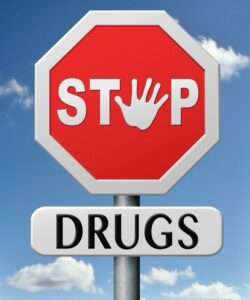The ideal world is one in which worp0kers manage to go do their jobs for their entire careers without feeling the need for drugs or alcohol. Unfortunately, many members of the working class find themselves using substances, and many of them push beyond the acceptable limits of recreational use into full-blown addiction requiring detox San Diego. This article will describe the different issues faced by those working a standard working-class job that might push people towards addiction.
Trigger Factors That May Make Workers Consider Using Drugs
There are many different factors in the world of employment that may make someone more likely to use drugs.
Without proper psychological and emotional management and preparation for these risks— self-care practices, for example, which are almost never offered in a place of employment—workers remain vulnerable to the possibility of becoming overworked, fatigued, burnt out, or otherwise so exhausted mentally or physically that they turn to drug use to remain productive.

Here are some specific triggers that might cause an employee to think about trying to self-medicate.
- Employer-employee relationships. Unless you are entirely self-employed and work from home, relationships are going to be a key part of your employment. Relationships between employers employees are among the most important and also, unfortunately, usually the most stressful.
- Since your boss calls the shots, you have to be on your best behavior around them and sometimes this means keeping your mouth shut even when your boss acts in a way that you find disrespectful.
- If you can’t leave your job, then the combined stress of being under the wing of an abusive individual while also trying to repress the feelings that you have about their behavior could easily trigger the desire for a drink or smoke.
- (If your boss is really is a terrible person, disrespectful and abusive, then you have more than enough right to leave the job and file a report against them.)
- Co-workers. Relationships among coworkers are just as important. There’s always that one worker that you don’t get along with. Ideally, they won’t get in your hair too much. But if they constantly pester you and disrupt your workflow, adding stress to your day, and you are unable to get them out of your way without breaking company policy, then you’re in a bit of a sticky situation. The result of this is that you might consider using drugs or alcohol to manage the added stress.
- The work itself. Repetitive work. High-stress jobs, dealing with large numbers or customers… the list goes on. If you’re finding the work to be so stressful that to be done can be overwhelming and push somebody towards drug use in order to meet deadlines.
- Harassment and abuse. Harassment and abuse can come from coworkers and employers, which we briefly touched on before. However, harassment can also come from customers, whether in person or in the form of emails or voice calls. Harassment can cause stress and in serious cases, emotional trauma which one might consider self-medicating with alcohol or drugs.
Conclusion
There are a lot of reasons that a job might contribute to addictive tendencies. Addiction is often the result of people trying to self-medicate for some emotional issue and it can cause a number of issues in the workplace; this may require detox in San Diego.
In our next article, we’ll discuss some of the ways that addiction can wreak havoc in the workplace, and then we will discuss some of the ways that both workers and employers can work to reduce the risk of addiction by creating a more friendly work environment.

